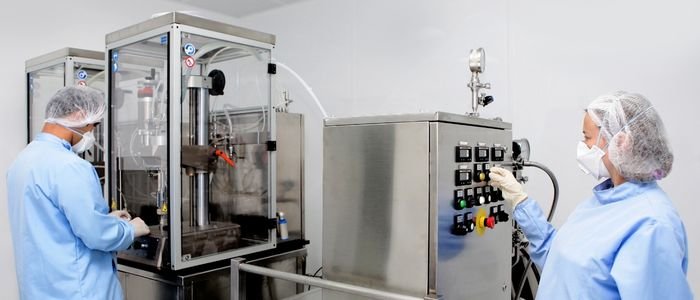Wondering how slurry pumps and engineers work together? Well, you might be surprised at what I’m going to share with you.

Slurry pumps and engineers are like peanut butter and jelly.
The slurry pump, which is the peanut butter, takes in liquid (the jelly) and pumps it through a pipe or tube. The engineer, who is the bread, directs the flow of a liquid using valves, piping, and other equipment. This cooperation between the two is critical to getting things done—and when they’re working together well, you can be sure that your project will come out great!
They’re just better together. That’s why we have such a talented team of slurry pump engineers here at Kingda. We believe in not only having a great product but also having great people who can help you use it.
We know how important it is for you to get the job done right the first time, so we make sure our engineers are always on hand to give you all the advice and answers you need.
Engineers and Slurry Pumps: How Are They Aligned With One Another?
Slurry pumps are a type of pump that can be used in a variety of applications, from mining to food processing. They can also be used for many different purposes, such as moving materials though pipes or channels.

They are used in a number of industries, which includes construction, too. They’re used to move materials like sand, gravel, and other soil-like materials. The machines are typically powered with electricity or diesel fuel and can be either stationary or mobile.
Pump engineers work with slurry pumps to design them so they can handle the specific materials that need to be moved through the system. Engineers also work with slurry pumps when setting up the systems to ensure that they are working properly, and they make sure that all safety precautions are being followed.
The engineers who work with these pumps are responsible for ensuring that everything goes as planned during the process of moving these materials from one place to another. They make sure that all parts of the machine are functioning properly, so that nothing is damaged from overuse or wear-and-tear.
What Do Engineers Look For A Slurry Pump?
When engineers are looking for a slurry pump, they want to make sure it’s got the right stuff.
They want to know that the pump can handle liquids and solids, that it’s durable and reliable, and that it won’t break down when they really need it. They also want to know that it’s easy to maintain, doesn’t require a ton of cleaning or maintenance, and will last through all the wear and tear of the job site.
And finally, they want to know that their slurry pumps will work well with other components in their systems—that they’ll fit with pumps from other manufacturers; that they’ll fit with valves from other manufacturers; and so on.
Slurry Pumps: What Are They Made Up With?
The pump body materials of centrifugal pumps are commonly cast iron, stainless steel, cast steel, bronze, composite materials, carbon structural steel, alloy steel and non-metallic materials.
The material selection of the pump body is related to the following aspects:
- The corrosion resistance of the material should be good;
- The strength of the material should be enough;
- The cost of the material should be reasonable;
- The processing performance of the product should be guaranteed by the manufacturer;
Cast Iron

Cast iron is one of the most common materials used to make centrifugal pumps. It’s a heavy, dense, and strong material that can withstand high temperatures and the stresses of running.
Cast iron is a good choice for those who want a durable product that will last for years. This material also has a low coefficient of thermal expansion, which means that it won’t expand or contract as much as other metals do when exposed to heat or cold. This can help keep your pump running smoothly and prevent any damage from occurring due to temperature changes.
Stainless Steel
Stainless steel is the material of choice for centrifugal pumps. This material is known for its strength and durability and has been used in various applications since the early 20th century.
Stainless steel is an alloy that contains at least 10.5% chromium. It’s also made up of varying amounts of nickel, manganese, carbon, silicon and molybdenum.
Stainless steel can be used to build everything from cars to kitchen appliances to medical equipment because it’s such a versatile material.
Because stainless steel is so strong and durable, it’s the perfect choice for centrifugal pumps.
Cast Steel
Cast steel is one of the most common materials used to make centrifugal pumps. The main advantage of cast steel is that it can be used to make a wide variety of parts, including impellers, impeller shafts, bearings and housings. The main disadvantage is that it is difficult to weld cast steel components together, which means that you will need to use bolts or other fasteners to hold them together.
Bronze
One of the most popular materials used in the construction of centrifugal pumps is bronze. This material was first used in the Bronze Age, and it’s been a standard for over 6,000 years.

By using a combination of copper and tin, you can create a strong yet lightweight material that will last for decades.
Bronze is also resistant to corrosion, so if you have a pump that’s exposed to high levels of moisture or other corrosive elements, you might want to consider this material.
Composite Materials
Composite materials are a combination of two or more different substances. They can be designed to be stronger, lighter and more heat-resistant than the individual materials that make up the composite.
Composite materials are often used for high-temperature applications, such as in aircraft engines and rocket motors, in which the material must be strong enough to withstand high levels of heat without melting or losing its integrity.
Centrifugal pumps contain many moving parts that require a certain level of strength and durability. Because of this, composite materials are often used in centrifugal pump manufacturing.
Carbon Structural Steel
Carbon structural steel is the best material for centrifugal pumps. This is because it’s lightweight, durable, and easy to work with. And when you’re dealing with a heavy object like a pump, that’s exactly what you’re looking for.
The other materials used in pumps are just not as good at handling the weight of a pump. And if there’s one thing that gets in the way of a good pump, it’s weight.
There are other materials out there on the market today that are more than capable of handling the job of being a part of a centrifugal pump—but none of them can come close to carbon structural steel when it comes to durability and lightness combined.
Alloy Steel
We know that when you’re looking for a pump, you want a reliable, high-quality product to help you get the job done. So, we put a lot of thought into choosing the right material for our pump construction: alloy steel. Alloy steel is strong, durable, and corrosion-resistant, which means it won’t let you down when you need it most. It’s also nonmagnetic and nonmalleable—which means that if someone accidentally drops your pump on the floor, it will stay in one piece!
Alloy steel is an excellent choice for centrifugal pumps because it can withstand both acidic and alkaline environments with ease. Plus, its ability to resist wear makes it an ideal choice for pumping corrosive liquids like acid or saltwater. And did we mention that alloy steel is also lighter than other metals? That means less weight means less strain on your system—which means more time between maintenance checks!
Composite Materials
The most common composite material for centrifugal pumps is fiberglass.
Fiberglass is a composite material made from glass fibers and resin. The fibers are fused together by the resin to form a strong, lightweight, waterproof material that can be molded into different shapes.
Fiberglass has many uses in industry, including centrifugal pumps. It’s used because it’s strong, durable, and does not corrode or rust like other materials used for this purpose. Fiberglass has high resistance to wear and tear, making it an ideal choice for use in centrifugal pumps.
How Can Kingda Engineers Ensure High-Quality Work?
What’s the difference between a Kingda pump and other pumps?

A Kingda pump is a beast. It’s an engineering marvel, and its only purpose is to get your business moving. And that it does with the help of some of the fastest, most effective experts in the industry.
Kingda Pumps’ main goal is to provide fast and effective solutions for all types of projects—whether they’re small or large, simple or complex. We want every customer to feel like they’re getting their money’s worth with every purchase they make with us.
You don’t want a pump that will break down in a month or two—you need something that can stand up to some serious use and still keep pumping like it’s supposed to. That’s what you’ll find when you choose Kingda pumps: The best experts in the business, who know how to build pumps that last for years and years without letting you down.
Contact us today to get you moving!


